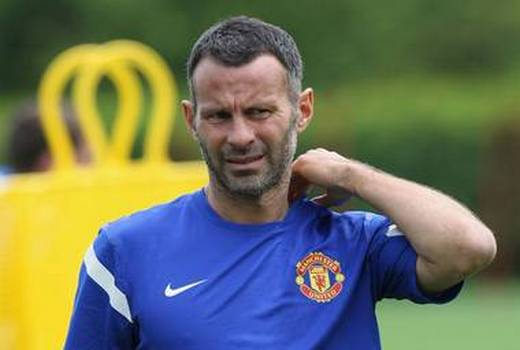News
James Lawton: Giggs has shown gut leadership worthy to inherit the hairdryer

If it happens that Ryan Giggs indeed wins the race for the succession at Old Trafford as the favourite-son nomination of Sir Alex Ferguson, no one need have much doubt about the day a nice idea became a compelling possibility.
It was in the first week of January this year when, at a most pivotal moment in the history of Manchester United, the 38-year-old Welshman stepped beyond the meaning of all those brilliant years out on the field.
His impact for one morning of his life at the training ground was more biting than even the rhetoric of his mentor Ferguson, which was saying quite a lot in the circumstances of two withering defeats by Blackburn Rovers, of all people, and Newcastle United, that left Manchester City running clear at the top of the Premier League.
Giggs addressed his team-mates in a way that many will never forget.
He didn't just talk of a breakdown in performance, however shocking that had been. He didn't dwell on the huge story of the week, the dropping and fining of Wayne Rooney after a desultory training session. He said that in the course of more than 20 years and 800 games of historic effort, he had never known the attitude of the team to be so slack and so low on the pride which had always been implicit in the wearing of the United shirt.
It was the kind of address which often comes on the eve of a battle or a dangerous sortie and it is guaranteed to make people think about who they are and what is expected of them.
A few years earlier, around the time of the 50th anniversary of the Munich air disaster, Ferguson had contrived a set-piece of similar potential.
He had Sir Bobby Charlton speak to the team about how it was to lose so many brilliant young colleagues on the snow-blanketed airfield in Germany. The Busby Babes were names from an old page of football history but Ferguson wanted extraordinarily talented players such as Rooney and Cristiano Ronaldo to have a better sense of what they had come to represent. It was an exercise in education and most said it worked rather well, at least for a while.
The Giggs initiative was, apparently, somewhat more visceral. It wasn't about great players who had gone but those with perhaps the same potential who were falling short.
He said that in recent games he simply hadn't recognised the United which had been at the centre of his professional life for so long. For men like Charlton and his friends Denis Law and Paddy Crerand it would have been a reminder of the occasion the immaculately suited Sir Matt Busby, who had been watching a practice session from his office at the old Cliff training ground, came striding down on to the field to complain about some work that was less than satisfactory. "This isn't Manchester United," the great man declared.
That was pretty much what Giggs said at the state-of-the-art facility in Carrington and United, for all the misgivings about the depth and quality of the squad, have looked a profoundly more motivated force ever since.
Though these may still be early days in the title race, and the candidacy of Giggs for the most prestigious job in English football, we are maybe talking about more than the confidence and conviction which have helped yield 13 from a possible 15 league points and some of the most commanding performances from Rooney since his tailspin at the end of the 2009-10 season.
What might just also be in the air is recognition that, in the past, too many of the great British players have been sent into areas of football management where the finest edge of their experience was often lost while working with skimpy budgets and players who, for all their other qualities, had neither the background nor the talent quite to understand the language of, say, a Bobby Moore at Southend.
When could it be better, you have to wonder, for a major player, exposed to great managers, to make a stir than in the last flush of his playing achievement, when the lessons which helped create that level of attainment, have not been dulled by failure in a long-odds managerial assignment?
Would Pep Guardiola have waxed so brilliantly if he had been required to hone his managerial skills in some worked-out mining town in Asturias or a no-hope team in the backend of Navarre rather than being absorbed by a Barcelona culture he knew so well? In an admittedly less complicated football age, Kenny Dalglish certainly showed the benefit of those certainties that came with a magnificent playing career and the tutelage of the Anfield Boot Room when delivering three titles to Liverpool.
So why not Giggs – why not investment in such an iconic figure? Why not a figure who was groomed from the moment Ferguson first declared him a protected species as the world rushed to embrace the new George Best?
Giggs was not Best, said Ferguson, he was simply a young player of immense and precocious promise who had to be protected from the worst consequences of the celebrity life. Giggs knows now a lot more about that condition, and he has a failed super-injunction to prove it, but untouched, it is suggested by no less than one of the most successful managers in the history of the game, is an understanding of the dynamics of a winning football club.
With Jose Mourinho flickering his eyelashes, Pep Guardiola maybe restive for a new assignment and Martin O'Neill reappearing on the touchline with revived passion, Giggs was perhaps inevitably seen as a glory rather than a legacy of the Ferguson years. In football, however, perceptions can change as swiftly as a gust of wind.
This one, thanks to 20 years of brilliance and one cold morning of bitter truth, might not so easily blow out.


